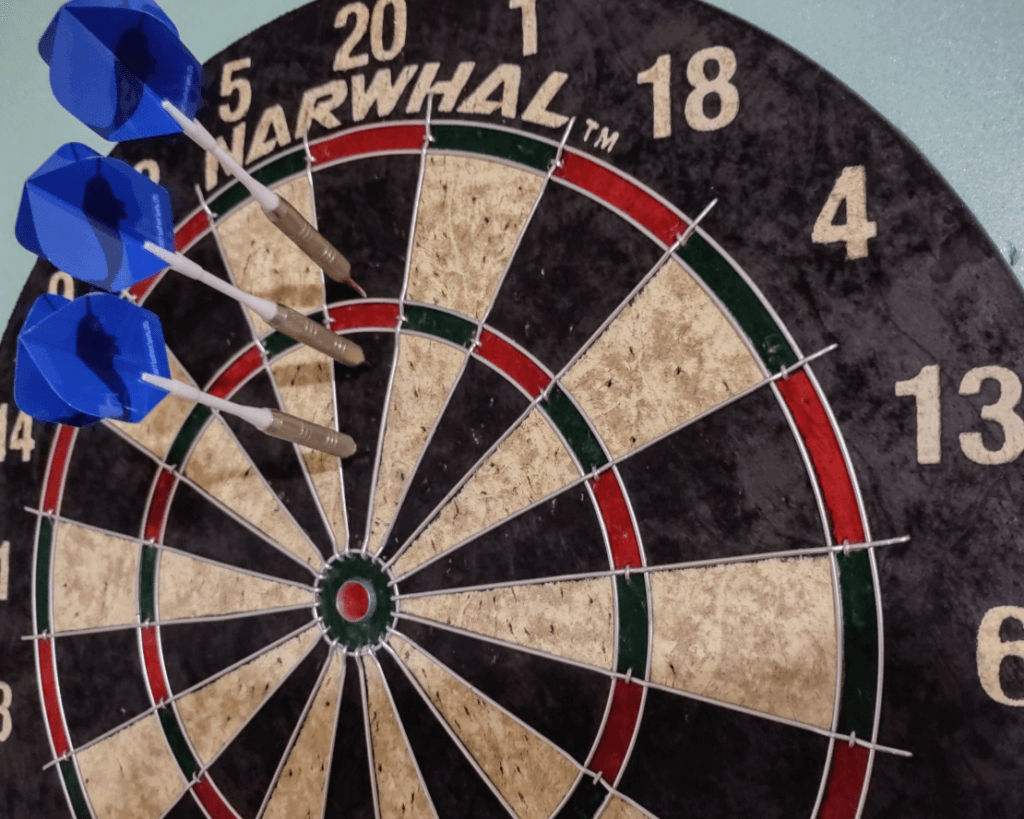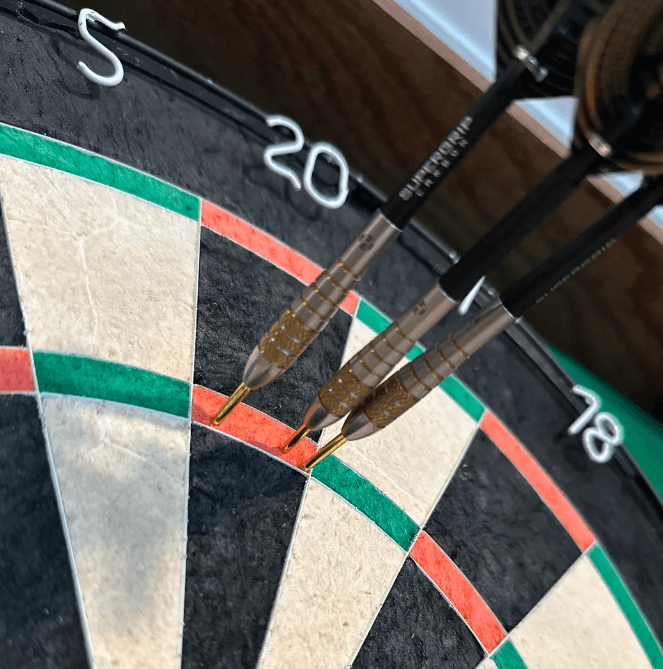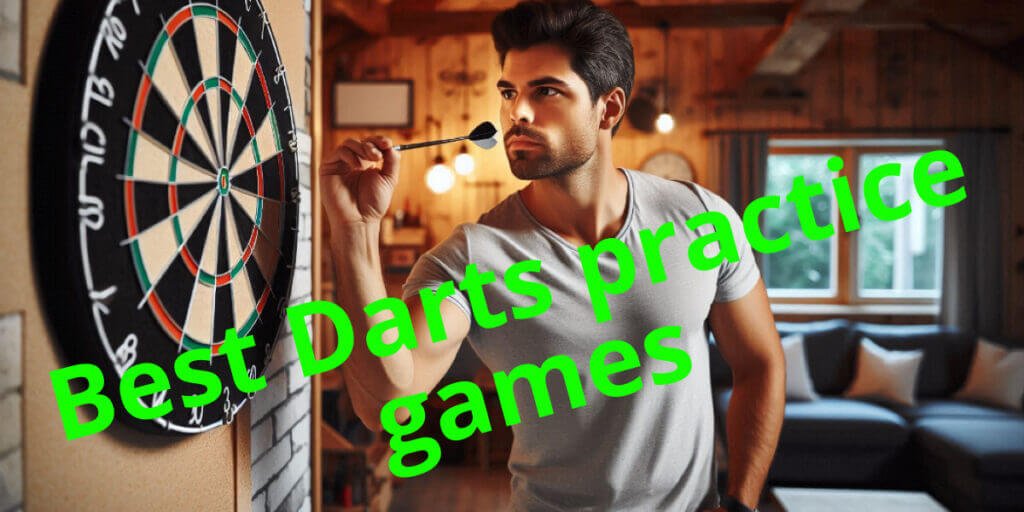Darts is a sport that combines skill, precision, and mental acuity. Whether you’re a casual player aiming to improve your game or an aspiring professional, darts regular practice is the cornerstone of success in darts. The saying practice makes perfect has a truth to it.
It’s not just about the number of hours you put in, but the quality and consistency of your practice that truly matter. In this article, we’ll explore the importance of regular practice in darts, the different aspects to focus on, and tips to make your practice sessions more effective.
1. The Significance of Darts Regular Practice
1. Skill Development
Darts is a game of fine motor skills that require significant muscle memory. Regular practice allows players to refine their throwing technique, grip, and release. Just as athletes in other sports train their bodies to respond to specific movements, dart players must develop a consistent throwing motion that becomes second nature.
- Muscle Memory: Consistent practice builds muscle memory, which enables players to throw darts with precision without having to consciously think about every aspect of their throw. This is especially important if you like to compete in tournaments – there once you are nervous you have to have a good foundation to fall back to.
- Refining Technique: Through regular practice, players can identify and correct flaws in their technique, leading to more accurate throws. A good way to find the parts of your technique that need some work is filming yourself and after analyzing – you don’t even have to share the footage with someone!

2. Improving Consistency
Consistency is key in darts – the best players in the world can hit their targets repeatedly, regardless of pressure or distractions. Regular practice helps players develop a consistent approach to the game. People who have played darts for several years can have some bursts of brilliance, but to deliver day after day you need to be consistent.
- Aiming and Targeting: By practicing consistently, players can improve their ability to aim accurately at specific segments on the board, increasing their chances of hitting the desired targets during matches. That is especially important for your double-out percentage – once you have that dialed down you have a chance to win any local tournament.
- Reducing Variability: A consistent practice routine helps minimize the variability in throws, making it easier to achieve a predictable outcome. Here it is important to make sure your body is moving as little as possible when you are throwing – fewer moving parts less potential for errors.
3. Building Confidence
Confidence plays a crucial role in darts, especially in competitive settings. Regular practice not only hones skills but also instills a sense of self-assurance in players.
- Familiarity with the Game: The more you practice, the more comfortable you become with the game, which helps reduce anxiety during matches. Here nothing will substitute the practice part – no matter how many tutorials you read, you also have to practice and throw the darts!
- Mental Toughness: Regular practice can help players develop mental toughness, enabling them to perform under pressure and recover quickly from setbacks. To build up your mental toughness it is a good idea to start with smaller local tournaments and build your way up. To improve faster it is good to compete consistently, to read the benefits of that you can head over to our article talking about how competing improves you!
2. Components of Effective Darts Regular Practice
To maximize the benefits of practice, it’s essential to focus on various components of your game. Here are some critical areas to include in your practice routine:
1. Fundamental Skills
- Throwing Technique: Spend time refining your grip, stance, and release. Work on maintaining a consistent throwing motion. This might not be as glamorous as trying to hit as many bullseyes as you can, but this is equally important.
- Aiming and Focus: Practice aiming at specific segments on the board. Use drills that require you to hit the bullseye or specific numbers to develop your targeting skills. Here you should try all the different segments on the dartboard – you never know which double you need in the game to win it!
2. Drills and Exercises
Implementing specific drills can help you focus on different aspects of your game:
- Treble 20 Drill: Aim to hit the treble 20 a set number of times in a row. This helps improve your accuracy and consistency.
- Around the Clock: Throw darts at each number on the board in sequence. This drill enhances your overall targeting skills and makes sure you can hit any number if the need arises.
- Checkout Drills: Practice common checkouts to improve your finishing ability, which is crucial during matches. Hitting the doubles at the beginning will be hard and quite demotivating, but it is one of the most important aspects of the game – you have to keep working on it!
3. Game Scenarios
Incorporating game scenarios into your practice can prepare you for competitive play:
- Match Play: Simulate match situations by playing against an opponent or yourself. This helps you develop strategies and get accustomed to the pressure of a real game. A good way to simulate a match is even using a darts app where you play against a bot (computer). It will add a layer of competitiveness to it so it is not just you throwing darts to reach to zero. A good app for that is Dart Counter – available for both Android and Apple.
- Timed Challenges: Set a timer and challenge yourself to hit specific targets within a set time. This can help improve your speed and efficiency during play. Once the clock is running down you will feel the pressure building so some nerves will start kicking in.
3. Tips for Making the Most of Your Practice Sessions
1. Set Specific Goals
Before each practice session, set clear and achievable goals. These could range from improving your average score to hitting a specific number of checkouts. Having defined goals will keep you focused and motivated. But keep in mind, the improvement will not be a graph always going up – you will have some days where you are having a lower average or sometimes when you can’t hit any doubles.
2. Keep Track of Your Progress
Maintain a practice journal to record your scores, achievements, and areas for improvement. This will help you identify patterns in your performance and measure your growth over time. Because your level may vary day-to-day, it is nice to show your growth over a bigger period of time – a month for instance. That is a time frame that will show your improvement and equal out the good and bad days.
3. Stay Consistent but Flexible
While consistency is crucial, it’s also essential to remain flexible. If you find a specific drill isn’t working for you, don’t hesitate to switch it up. Adapt your practice to your current needs and focus areas. It is also a good idea to change up your practice drills from time to time, you don´t want to get tired of it so you would quit.
4. Focus on Quality Over Quantity
It’s better to have shorter, focused practice sessions than long, unfocused ones. Aim for quality practice, where you concentrate on specific skills, rather than just throwing darts aimlessly for hours. Also, make sure nothing is pushing down on you when you are practicing – if you are thinking about other things you will not get the most out of your practice time.
5. Incorporate Mental Training
Mental preparation is just as vital as physical practice. Incorporate techniques such as visualization and mindfulness into your routine to enhance your focus and reduce anxiety. Maybe even some breathing exercises from time to time if the game is not going your way – it is good to be ready for the tournament.
6. Stay Physically Fit
Incorporating physical fitness into your routine can also benefit your game. Improved core strength and flexibility can enhance your stability and endurance, especially during long matches. Some tournaments may last for the whole day – if you have not practiced for such a long period you will get tired and can´t perform for such a long straight period.

4. The Impact of Practice on Competitive Play
As you continue to practice regularly, you’ll likely see significant improvements in your performance during competitive play. Here are some specific benefits:
1. Increased Average Score
Regular practice leads to a higher average score, which can make a significant difference in matches. Players who practice consistently tend to perform better under pressure. It is also one of the statistics that everybody looks at and even one of the main points when talking about professionals and how they are doing.
2. Better Finishing Ability
Practicing checkouts and finish options regularly will enhance your ability to close out games effectively, a vital aspect of winning in darts. It is said, that a high average is for show but checking out is for dough – when you cant hit a double there is no way for you to win the game.
3. Enhanced Game Strategy
The more you practice, the better you understand your strengths and weaknesses. This knowledge allows you to develop strategies that play to your advantage during matches. Once you get familiar with different checkouts and what number you need to hit next. Once you don´t have to think so much what number to aim next, it will come more as a second nature and take out the thinking part.
4. Greater Resilience
Regular practice fosters resilience, helping you bounce back from missed shots or challenging situations during competitive play. If you have some way to calm yourself down after some mess-up it makes the game easier – and in the game of darts, there will be some messing up!
5. Darts Regular Practice Conclusion
Regular practice is the foundation upon which success in sports is built – darts are no exception. It allows players to develop their skills, enhance consistency, and build confidence, all of which are crucial for performing well in matches. By focusing on key components of practice, setting specific goals, and incorporating various drills and exercises, you can significantly improve your game.
As you embark on your darts journey, remember that the road to mastery is paved with consistent effort and dedication. Embrace the process, stay committed to your practice, and watch as your skills and confidence grow. With time and perseverance, you’ll not only improve as a player but also deepen your enjoyment of this fantastic sport. Happy throwing!





